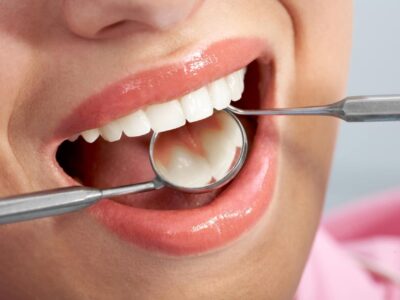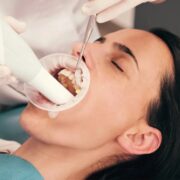
The medical term impotence is used to define problems which interfere directly with sexual intercourse or it could be a complete loss of sexual desire and ability or difficulties related to orgasm or ejaculation. For a better understanding of a course of treatment for either of the conditions, you need to go to your doctor who could do a complete physical exam, discuss any previous or current medical conditions, and gather a list of drugs you are currently taking which might have an influence on your impotence problem. Once you have gathered the necessary information, your doctor could take up the case and start assessing the situation. Impotence could be caused by physical or psychological factors or both. Impotence treatment could involve physical therapies such as exercises and physical rehabilitation and mental therapies including hypnosis or other self-help techniques to improve your mindset towards sex.
Impotence, like many other sexual dysfunction diseases, often goes undiagnosed as this symptom is not that common. However, the disease can actually have multiple symptoms that are both psychological and physical. Psychological symptoms of impotence could include feeling inexperienced in the activity, low self-esteem, lack of confidence, or having difficulty in achieving or sustaining an erection. Physical symptoms include low levels of blood pressure and low heart rate, numbness in the hands or penis, excessive sweating, leg pain or muscle tension, headaches, and fatigue or poor health. Psychological symptoms of impotence could also result to lower sexual performance during sexual activity.
There are several ways to confirm if one is suffering from impotence. If a person experiences erection difficulties and has a decreased sexual performance even after being fully aroused, then this is a sign of impotence. It could also mean that the person has erectile dysfunction but is too shy or embarrassed to disclose this to his partner. If you suspect that you have impotence or erectile dysfunction, then you should visit your local medical center as soon as possible for proper diagnosis and treatment.
Being overweight is one of the major causes of impotence as losing weight usually leads to losing some of the bodily fluids and weight of the penis. If you want to prevent losing the weight that may lead to impotence, it is important to first consult your doctor and start doing physical exercises. This is because physical exercise is known to improve the blood flow and pumping capability of the penis. Also, taking multivitamins can prevent the loss of fluids and weight that might lead to impotence.
Impotence is also caused by psychological factors. For instance, if you have a close family member who is suffering from this disease, then you are more likely to experience this disease yourself. Other psychological causes of this disease include high blood pressure and anxiety. In most cases, men who suffer from high blood pressure and anxiety are not able to impregnate their partner due to their psychological condition and this results in diminished libido and sexual activities. If these reasons are ignored, then you might eventually develop Impotence.
Impotence might be treated depending on its severity. Common treatments for mild forms of impotence include psychosocial counseling, medication, and surgical procedures. More severe forms of this disease require treatments such as penis enlargement surgeries, penile implants, penis traction devices, penile injections, and penile surgeries. These treatments are only meant to alleviate the physical aspects of the disease; they have no effect on the psychological aspects. So it is highly recommended that you see your doctor if you suffer from any of these conditions and ask for expert advice and treatment.
Impotence is the medical term for any condition that affects a man’s ability to have an erection. Erectile dysfunction can affect men of all ages, but it is most common among men in their 30s and older. Impotence has many different defined types. One type of impotence is known as erectile hypoplasia. Erectile hypoplasia has many causes and effects, but the most common is the decreased activity of the testes. Other men are unable to achieve or sustain an erection, which is commonly known as impotence.
Another common cause of impotence is diabetes. Diabetes increases the risk of heart problems, especially from cardiovascular disease and its risk factor of having impotence. The main symptom of diabetes is the inability to achieve or sustain an erection. If a man with diabetes does not control his diabetes, it is possible that he could develop coronary artery disease or atherosclerosis, the build up of fatty plaques on the arteries that supply blood to the heart.
Another cause of impotence is anxiety. Anxiety can cause many physical and psychological problems. One of the physical symptoms of anxiety is impotence because it is hard for a man with anxiety to achieve or sustain an erection. A change in lifestyle changes, including stress management, better diet and nutrition by considering foods that help erections maintain, and getting enough sleep and exercise, may help in treating erectile dysfunction caused by anxiety.
Impotence is often considered a symptom of some other underlying disease, but it should not be treated as such. Impotence can occur without any other physical causes. The treatment of impotence must address the physical causes of the symptom. Some physical causes of impotence include a blocked or damaged urinary tract, enlarged prostate, excess fat in the abdominal area, low levels of vitamin B12, muscle weakness, cholesterol problems, high calcium levels in the blood, and/or high potassium levels in the body. These factors can cause a man to have erectile dysfunction, but if they are the only causes of impotence, the treatment of the physical causes should address the symptom.
Impotence is more common in elderly men who have decreased blood flow to their penises. There are various causes of impotence, including hormonal, surgical, neurological, or vascular causes. Hormonal impotence occurs when a man produces too much testosterone, a hormone required for proper male sexual functions. This can be caused by a number of factors including disease, health, or medications. The best way to treat hormonal impotence is to decrease blood flow to the penis, since this is the main cause of impotence and a key symptom of heart disease.
Traumatic events, such as child abuse or rape, are sometimes considered to be among the psychological causes of impotence, but this is not really so. Psychological problems, such as stress or depression, do affect men, just as they affect women. However, it is usually men who seek psychological treatments because of their suffering from impotence, rather than women. It is not uncommon for older men to seek psychological treatments for erectile dysfunction because of emotional issues that have been affecting their sex lives.











